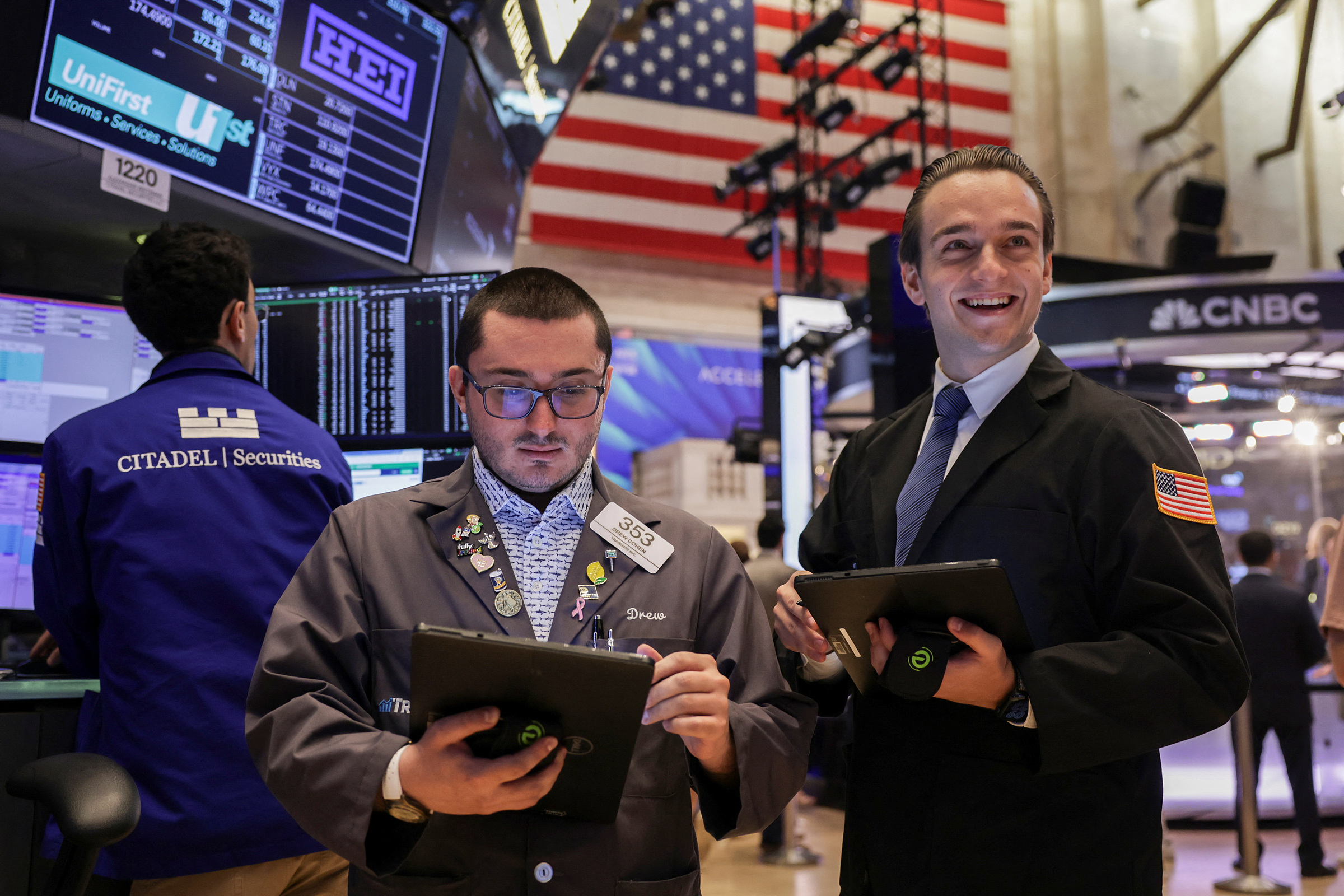The S&P 500 rose 0.02% on 28/7, marking its sixth consecutive record-breaking session. The index has reached new highs 15 times this year.
The Nasdaq Composite also gained 0.3%, and the DJIA climbed 0.14%, partly due to the U.S.-EU trade agreement.
This recent trend contrasts sharply with April, when President Donald Trump first announced retaliatory tariffs against all trading partners. In just three days, the S&P 500 plunged 11%, its largest drop since 3/2020. The DJIA also recorded two consecutive sessions with losses exceeding 1,500 points.
Investors and economists feared that import tariffs could trigger soaring inflation and a global recession.
 |
The S&P 500 has significantly recovered after its plunge in early 4/2025. Chart: Google Finance |
However, these pessimistic forecasts have recently diminished. In the past few months, the U.S. has announced trade agreements with several partners, including the UK, China, the EU, Japan, the Philippines, Indonesia, and Vietnam.
While the impending U.S. import tariffs are significantly higher than before Trump's presidency, they are considerably lower than those announced in early April. This has alleviated investors' worst-case scenario fears.
Economists note that global growth has remained robust. The long-term impact of import tariffs on inflation is now smaller than initially projected. Easing financial conditions in many economies have also brightened the outlook.
JPMorgan Chase, the largest U.S. bank, known for its pessimistic forecasts, has lowered its U.S. recession probability for this year from 60% in April to 40% currently. While still higher than normal, this reflects a less pessimistic view.
"Import tariffs make goods the U.S. buys from abroad more expensive, but the increase is not large enough to derail the economy's growth trajectory," explained Bruce Kasman, JPMorgan's chief economist.
Like other banks, JPMorgan previously anticipated that Trump's tariffs would trigger a global wave of retaliation. "But instead of tighter global trade, the U.S. market has opened up a bit more," Kasman observed.
 |
Traders on the New York Stock Exchange on 25/7. Photo: Reuters |
Better-than-expected second-quarter earnings have also contributed to the U.S. stock market's positive performance. According to FactSet, 169 S&P 500 companies have reported earnings, with 82% exceeding expectations.
"The upward trend continues, supported by favorable fundamentals: stable inflation and interest rates, and a trend of increasing corporate profits. Risk assets remain favored during the current earnings season," Terry Sandven, chief equity strategist at U.S. Bank Wealth Management, told CNBC.
However, import tariffs could still pose a threat to the U.S. economy. While the risk of recession has decreased, tariffs could potentially hinder growth.
"We believe the most likely scenario is sustained slow growth and high inflation. The negative impact of trade and immigration controls will outweigh the positive effects of deregulation and increased fiscal spending," said Michael Zezas, strategist at Morgan Stanley.
Furthermore, the final outcome of the trade negotiations remains uncertain. Many issues are still unresolved before Trump's August 1st deadline.
The U.S.-EU agreement will also require further consideration by the Federal Reserve (Fed) in its meeting this week as it assesses the impact of tariffs on inflation. The Fed has held its benchmark interest rate steady since Trump took office, largely due to caution regarding the potential impact of import tariffs.
Investors do not expect the Fed to adjust interest rates in its meeting concluding on 31/7, but they will closely monitor signals about future steps. Many experts now predict a rate cut in September. This likelihood could increase if the economy weakens while inflation remains under control.
"Tariffs with major trading partners are around 15% rather than the much higher levels proposed on 2/4. The market and the Fed will increasingly believe that the negative impact on growth and the risk of inflation are modest," said Citigroup economist Andrew Hollenhorst.
Sandven also acknowledged that import tariffs remain a source of uncertainty. "So do other geopolitical risks, from the Russia-Ukraine conflict to Israel-Iran. However, the trend in the U.S. stock market is still upward," he concluded.
Ha Thu (according to CNBC, Reuters, CNN)












